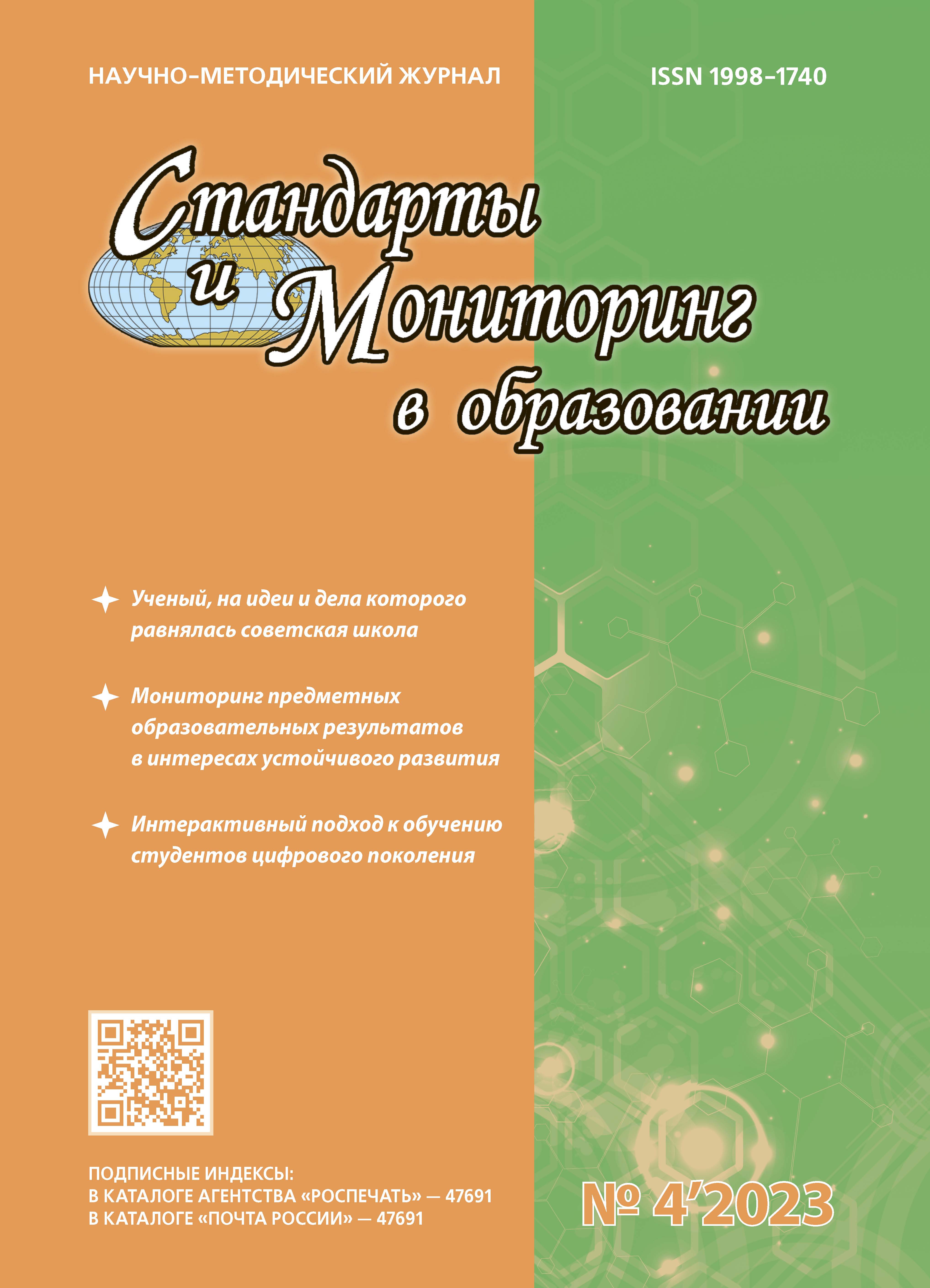Omsk, Omsk, Russian Federation
Russian Federation
From the perspective of preserving traditional forms of teaching and using innovations in the educational process, the educational tracks of students of the digital generation should be determined taking into account their cognitive, communicative and personal characteristics. The use of an interactive approach meets the above requirements. It is one of the innovative approaches to learning and is considered the best educational practice. The article examines the role of an interactive approach to teaching students of the digital generation, highlights their key features that teachers should take into account in the educational process, identifies the priorities in teaching students of the digital generation, taking into account their characteristics. It was concluded that the use of an interactive approach to teaching students of the digital generation enables to maximize the positive effects of their features, increases the effectiveness of training due to the opportunities provided to students in their interaction with each other and with the teacher in the learning environment.
digital generation, higher education, teachers, students, interactive approach, interactive methods
1. Almabayeva E.E. Interactive teaching methods as means of developing students' communicative skills. Scientific potential] 2021. no. 2 (33). pp.45-48. (in Russian)
2. Bukharbayeva A.R., Sergeeva L.V. Clip thinking of generation Z: methods of developing students' creative potential. Bulletin of the Peoples' Friendship University of Russia. Series: Literary Studies. Journalism, 2020. vol. 25. no. 4. pp. 787-796. (in Russian) DOI:https://doi.org/10.22363/2312-9220-2020-25-4-787-796
3. Isparov A.A. Methods of interactive teaching of the history of students of SVE and HPE. Archon, 2022. no. 1(28). pp.105-129. (in Russian)
4. Kalnitskaya I.V., Maksimochkina O.V. Actors of the digital educational environment and their influence on the development of students' digital competencies. Teacher of the XXI century, 2022. no. 2. part 1. pp. 64-77. (in Russian) DOI:https://doi.org/10.31862/2073-9613-2022-2-64-77
5. Lapidus L.V., Gastilovich A.O., Omarova S.A. Features of the penetration of digital technologies into the life of the generation Z: values, behavioral patterns and consumer habits of the Internet generation. Public administration. Electronic bulletin, 2020. no. 83. pp. 271-293. (in Russian)
6. The law on education in the Russian Federation dated December 29. 2012 No. 273-FA: adopted state law. Duma Feder. SOBR. Russian Federation 21 Dec. 2012. Collection of laws of the Russian Federation. 2012. No. 53, Part 1, article 7598. pp. 17807-17934.
7. Palaznik E.A., Mikheeva E.A. The specifics of training representatives of generation Z. Scientific works of the Republican Institute of Higher Education. Historical and psychological and pedagogical sciences, 2022. no. 22-3. pp. 266-272.
8. Goryunova, E., Jenkins, D. (2023). Digital Natives. In: Dhiman, S.K., Marques, J., Schmieder-Ramirez, J., Malakyan, P.G. (eds) Handbook of Global Leadership and Followership. Springer, Cham. https://ezpro.fa.ru:2117/10.1007/978-3-030-75831-8_22-1
9. Mora, C. (2023). Science and Technology Teaching Strategies. In: Akpan, B., Cavas, B., Kennedy, T. (eds) Contemporary Issues in Science and Technology Education. Contemporary Trends and Issues in Science Education, vol 56. Springer, Cham. https://ezpro.fa.ru:2117/10.1007/978-3-031-24259-5_15
10. Norin V. A., Norina N. V., Pukharenko Y. V. Interactive methods of teaching at Russian engineering universities //Education and Information Technologies. 2018. v. 23. no 6. pp. 2801-2820.






